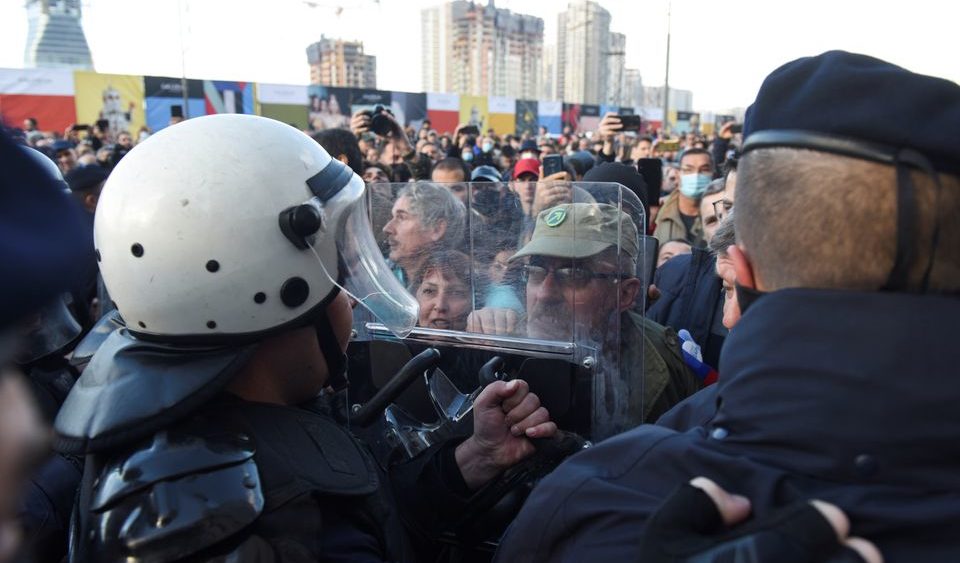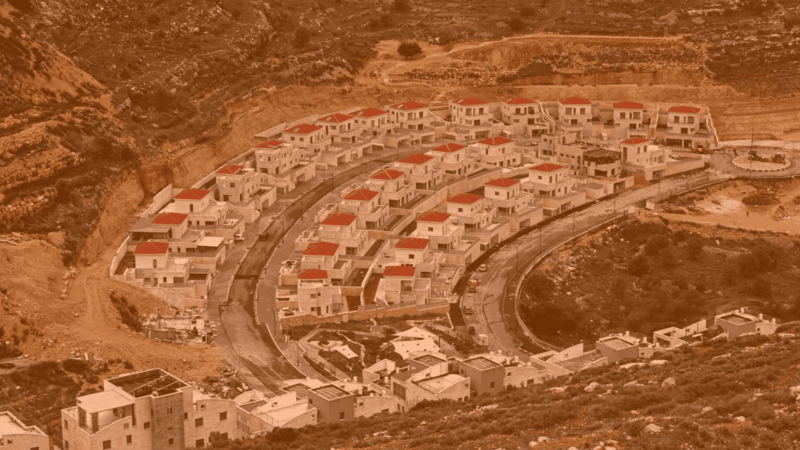In November, protestors blocked bridges and roads in the Serbian cities of Belgrade and Novi Sad. They were expressing concern at government plans for new property expropriation, and other laws, which could facilitate transnational mining by Rio Tinto and others. Corporations like Rio Tinto want to extract lithium from mines in Jadar and Radjevina, Western Serbia, worth a total of $2.4 billion.
In Ireland, during the same weekend, demonstrators came together at a gold mine in Tyrone to oppose plans for gold mine prospecting in the north western county of Leitrim.
In recent months, communities in Ulster and other provinces have united in opposition to extractive industries, such as toxic mining for gold and other metals, and have held various protests and demonstrations, including at the Dublin and Belfast Assembly buildings.
This reflects the fact that people in Europe are becoming increasingly aware of the risks posed by extractive industries, particularly their destructive environmental impact to land, air, water and the biodiversity of the planet.
One of the campaigners against gold mining by a Canadian company at the Sperrins in Ulster, who was at the Dublin demonstration in August, said, ‘gold mining is the second most destructive industry in the world, second only to nuclear’.
Activists from another group, Save Inishowen from Gold Mining, who supported the demonstration, have pointed out that ‘large gold mines use 1,900 tonnes of cyanide per year to separate gold from ore – a rice size grain of cyanide can kill a human’. They also refer to an incident in Romania at the Baia Mare mine where a waste dam failure released 2,5 million cubic feet of cyanide contaminated water into the rivers Tisza and Danube.
There is already broad awareness among the European population of the heavy environmental and human costs and misery caused by mostly Canadian registered corporations, making up 75% of the world’s mining companies, in Global South countries such as Papua New Guinea, Ghana, Ecuador and the Philippines. Most recently there was dismay at the news that a section of the Amazon rain forest will be cleared for the Mirador copper mine in Ecuador.
The campaigning group Yes To Life No To Mining (YLNM), who have been campaigning from London and who have support groups in the regions most affected by mining, now express fears that ‘many of the abuses in the Global South are now being replicated in Europe’.
In Europe, from the Western Peripheries of Ireland and Spain through to the Eastern Peripheries of Finland and Serbia, mining operations for the extraction of metals deemed suitable for so-called ‘green’ capitalism are gathering pace in order to maximise profits for private enrichment while disregarding the high risks for environmental destruction and climate catastrophe.
According to Lynda Sullivan of Friends of the Earth (Northern Ireland) twenty-five per cent of the northern six counties, and twenty-seven per cent of the rest of Ireland, have concessions for potential mining which could increase to seventy per cent.
Transnational corporations are manipulating the worries over global warming and climate change to accelerate the process of extractivism and to spread it more widely, including to the Global North. They recognise that the extraction and processing of metals and minerals such as lithium, cobalt, nickel, zinc and rare earth elements must be significantly increased to meet the ‘consumer demands’ they are creating for products like electric cars in the growth for growth sake economy in which they have a huge stake.
It is estimated that the demand for lithium will be fifty times greater by the year 2040. YLNM have explained that eighty-two per cent of mining areas are for metals and minerals for renewables. Germany has become one of the largest importers of this metallic raw material for its large scale automotive industry. The demand for copper to be used in electric vehicles will rise from 208,000 tons in 2017 to 1.91 million tons in 2030 – a nine fold increase in thirteen years.
Sacrifice Zones
On December 6, at an online meeting to oppose extractive operations in Ireland, concerned citizens and community activists heard the American film actor and environmental protection activist Mark Ruffalo say that ‘Ireland should not be a sacrificial zone’. This call for environmental justice so that ‘our homes, lands and waters are not treated as sacrifice zones’ has been echoed by other campaigners. At the ‘No To Toxic Mining’ demonstration in Dublin the rallying cry was ‘Ireland is not for sale!’. And during the Belgrade protests one person attending said ‘I’m angered because we’re an occupied country’.
Both responses signify the upset that communities are starting to feel because of the way that the Serbian and Irish governments seem intent on trading away the good health of people, place and planet to transnational mining corporations. The two governments are declaring that the countries are ‘open for business’ to these mining companies and encouraging them to view community life, as well as land, air and water as sacrifice zones in their pursuit of big profits that will be siphoned out of the country.
European governments, including those in the EU, such as Ireland and those waiting to join, such as Serbia, are operating within an EU framework with its policies of mixing up demand for more mining with action on climate change, and conflating this with social progress. This is based on the belief that increased consumption for its own sake is good and necessary regardless of the negative outcomes and consequences. This is putting them into conflict with communities who are genuinely concerned and seeking solutions to the problems of climate catastrophe, loss of bio-diversity, and environmental destruction.
People are increasingly seeing that economic policies resulting in environmental abuse, and based on the illusion of ever-increasing ‘gross domestic product’ are not the answer. The people mobilising to resist extractive industries must be supported in their ‘Right To Say No’ to the imposition of toxic mining in their communities and environment. This right is enshrined in legally binding Free Prior and Informed Consent (FPIC) protocols, and must be respected.
Pathways to solutions should also be presented as part of this resistance and struggle for rights and justice. This includes the proposals contained in DiEM25’s Green New Deal for Europe (GNDE);
- ‘For all EU institutions to switch from a Gross Domestic Product (GDP) to a Genuine Progress Indicator system of accounting’
- ‘Recognising that environmental destruction is a threat to human and non-human life, introduce an Environmental Abuse Directive to codify the civil wrong for contributing towards climate and environmental damage, with personal and punitive liability for those who profit from pollution’
- ‘Recognise that climate change is criminal damage, and that ecocide is also a crime’
Photo (c) REUTERS/Zorana Jevtic
Do you want to be informed of DiEM25's actions? Sign up here















